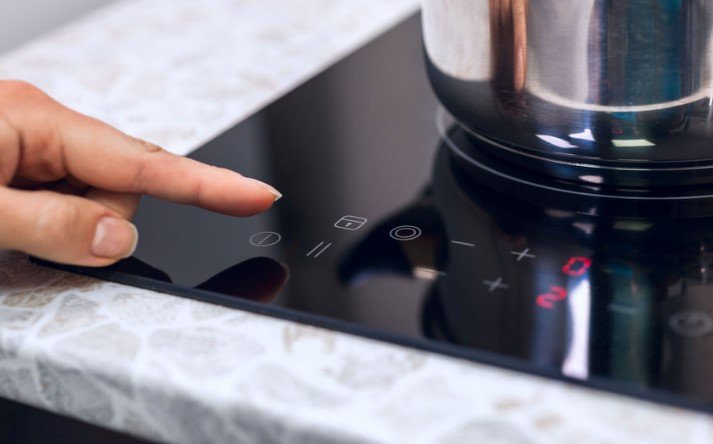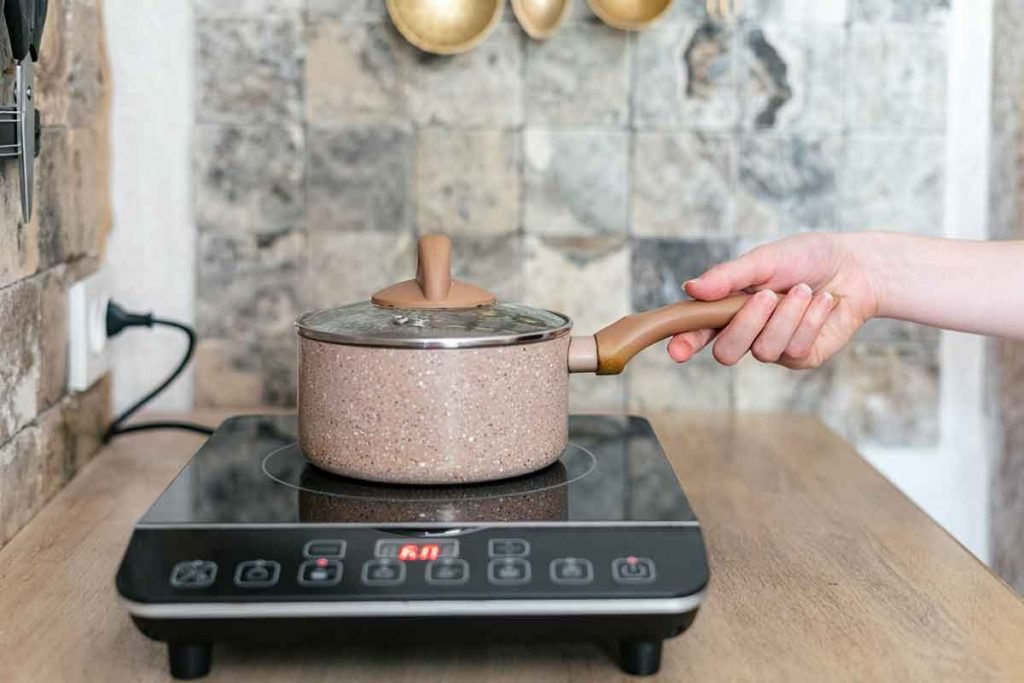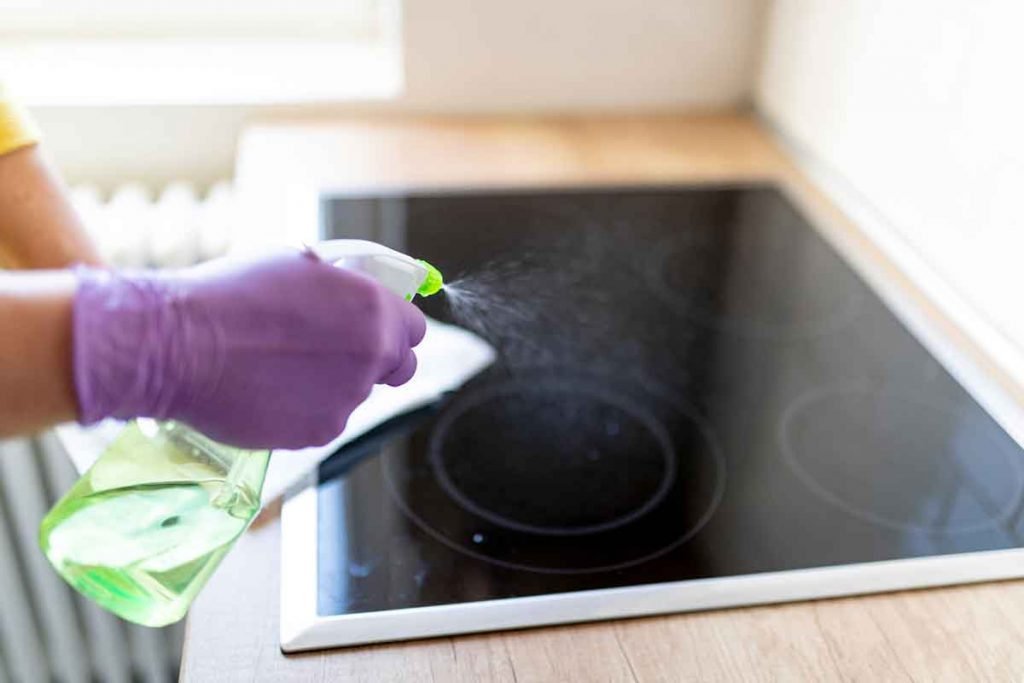Typically, good quality induction stoves from top brands can range between 10 and 20 years under average use.
After that hefty investment in an induction cooktop, it’s natural to ask yourself: “How many years can you actually expect the induction range to last?” Will it reliably function beyond the warranty period or fall victim to wear and tear issues down the road?
Determining realistic lifespans for induction cooktops relies on several factors. Getting the most mileage requires proper usage and care habits.
Read on to better understand longevity factors and employ best practices for enjoying your induction cooktop for the long haul.
Induction Cooktop vs Electric Cooktop vs Gas Cooktop Longevity
Generally, induction cooktops outpace both gas and traditional electric in overall lifespan thanks to durable glass surfaces and internal diagnostics detecting maintenance needs early on.
Review the breakdown:
| Cooktop Type | Average Lifespan Range |
|---|---|
| Induction | 10 – 20 years |
| Electric Coil | 8 – 15 years |
| Gas | 5 – 12 years |
What is the Lifespan of Induction Cooktops?
The average induction cooktop lifespan falls between 10–15 years of regular ongoing usage. High-end models or limited residential use can extend up to 20 years before requiring replacement. This exceeds gas and electric coil cooktops which average around 12 years before showing signs of breakdown.
The smoothed-glass electric interface free of heating elements undergoes less mechanical stress increasing durability. Built-in diagnostic systems also promote early detection of problems before catastrophic failure occurs through error code monitoring unlike outdated cooktop styles prone to abrupt breakdown incidents. Of course, reliability still depends on proper care and avoidance of damage during use.
How to Find Out the Lifespan of Your Induction Cooktop

While most manufacturers don’t outright list an exact lifespan estimate, looking for longer warranties provides insight into designed durability. Premium induction brands offer up to 10 years of full coverage, while lower-tier companies stick with just 1 year.
Digging into customer reviews and complaints also proves to tell if models universally fail right after the warranty period or continue humming along past the decade marker. Weigh the frequency and severity of negative feedback compared to units running strong at 15 years and beyond. This offers a real-world snapshot of realistic staying power.
How to Increase the Lifespan of Induction Cooktops
While generally durable, taking proactive measures maximizes how long your induction cooktop lasts at peak performance. Focus on responsible day-to-day care along with catching and addressing potential warning signs of wear and tear early on.
1. Careful Cleaning
Get into the habit of consistent cleaning after each use to avoid small messes transforming into burned-on debris that scratches glass over time. Gently hand wash the cooktop using soft damp sponges or cloths paired with non-abrasive ceramic glass cleaner. Avoid using rough scrubbing brushes or steel wool pads. Over time, the subtle scratches add up compromising smooth glass integrity leading to cracks.
Also, skip placing hot pans from the oven or stove directly onto the glass while exposed parts still rapidly cool down. The extreme temperature shifts can expedite cracking or fracturing risk. And take care to fully clean up any hot sticky sugars or batter drips, which carbonize quickly at high heat.
2. Protective Pans
Choosing optimal cookware prevents unnecessary scraping and scuffing of delicate glass. Opt for pots and pans touting stainless steel bases or better yet – fully encapsulated bottoms with an additional layer of stainless steel completely sealing the underside.
This creates a smooth, protective barrier when placed on the induction glass. While durable, uncoated cast iron bottoms slowly abrade the pristine finish over the years. Also, refrain from cooking bare direct heat like flames touching down.
3. Ventilation & Climate Control
Getting into a habit of running adjoining vent hoods during cooking cycles and 20+ minutes afterward gives heat time to safely dissipate without overworking sensitive internal electronics. If living in temperature extreme climates, avoid situating induction units in hot garages or cold basements. Maintaining regulated room temps whenever possible limits rapid expansion and contraction stresses on delicate parts.
4. Diagnostic Upkeep
Induction interfaces contain smart sensors capable of detecting problems early and even self-diagnosing potential issues before outright failure occurs. So keep an ear out for any rattling fans, humming noises, or slight burning smells which should prompt investigation.
Also, inspect any error messages or displayed codes pointing to specific failing parts. Research common codes for your make and model online to identify and resolve minor fixes before catastrophic damage takes place.
When Issues Arise
Even if major issues pop up down the road, resist impulse replacing the whole induction unit. Seek professional appliance repair for assessment. Specialized technicians can readily replace common failing parts like fans, circuit boards, and sensors restoring functions as good as new at a fraction of full replacement.
So don’t assume that a random glitch spells the end! Leverage quality components designed for repair prolonging lifespan past the 10-year mark.
Summary
In the cooktop world, induction reigns supreme not just for cooking prowess but for sheer lifespan holding strong anywhere from 10-20 years. Compare that to 5-15 for gas and under 12 historically for electric coils prone to abrupt breakdowns.
Support longevity through smart cleaning habits, responsible usage avoiding undue wear and tear, and investigating warning noises early on. Take advantage of induction’s interface diagnostics before catastrophic damages occur. Then enjoy those lightning speeds and perfect simmering for family meal times far into the future.
Common Questions
How many years can an induction cooktop reasonably last?
You can expect 10-15 years of reliable lifespan for mid-range induction units with high-end models exceeding 20+ years through careful usage avoiding broken glass or damaged internal components requiring full replacements.
Why do induction cooktops tend to last longer than gas or electric?
Lacking exposed hot heating coils, induction short circuits have common wear issues through smooth durable glass with heating originating in the pan bases instead. This avoids cracking damage over time. Built-in diagnostics provide early warning signs before abrupt breakdown incidents seen in outdated cooktops.
Does induction have to be replaced if a coil or heating element fails?
Since induction doesn’t rely on physical coils, repairs usually focus on internal fans, circuit boards, wiring, and sensors. So unless the glass interface cracks, induction repairs involve replacing modular components prolonging unit lifespan rather than requiring full replacements as often.
Can improper use or cleaning ruin an induction cooktop’s lifespan?
Yes absolutely. Failing to follow care guidelines by allowing heavy pots/pans to crack or scratch glass, using abrasive scouring pads or powders during cleaning, and ignoring rattling fans or error codes accelerates wear eventually shortening functional lifespans through damaged parts.
What are signs my induction is nearing the end of its lifespan?
Consistent error codes, rattling fans signaling imminent failure, the smell of burning components, shorts tripping breakers, severe scratches on the glass, unresponsive touch panels, and exterior overheating warn your induction may be due for replacement.



